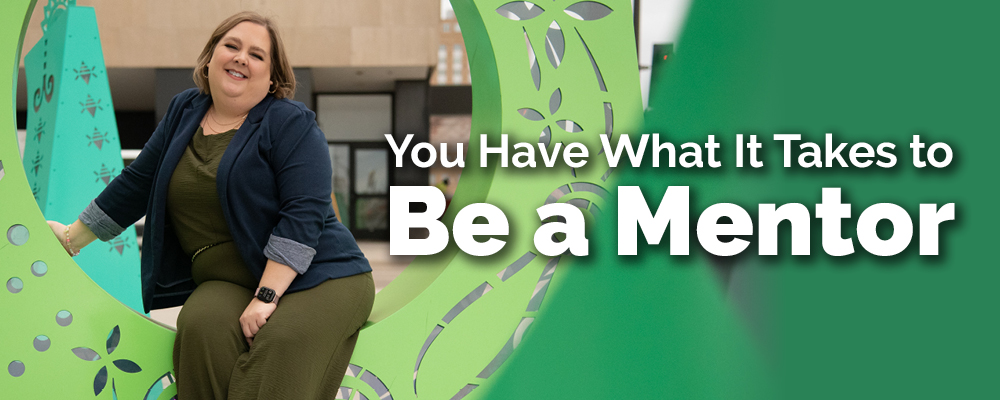
By Hon. Victoria Elsmore
2023-2024 RCBA President
I've got to say, I'm surrounded by some fantastic, generous, and downright brilliant folks. Whether I'm at the Ramsey County Courthouse, attending an RCBA meeting or event, or just doing my thing in life, the people around me continually blow me away.
I recently attended a conference where everyone shared stories about the people who made a big impact on their careers. These were seriously impressive individuals, and guess what? Everyone had a story involving someone giving them a hand. I've got those stories too. Countless people who shared their time or believed in me, helping me get to where I am now.
As we navigate our careers, it's important to reflect on our journey. I am sure you can pick out those mentors, those guiding stars, who lit the way for you. These folks weren't just sharing knowledge; they were investing time, trust, and belief in your potential. Now, get this—you are also someone's guiding star. You are in a place someone wants to be. You have accomplished things someone is aspiring to accomplish.
So, in this column, I have a challenge: Take a quick look behind you and see who you can lift up. I will offer some practical tips about mentoring and throw in a much-needed pep talk for people who may think they are not ready to be a mentor.
Side note: I could not write about mentorship without a shout out to my friend and former law partner Bryce Miller. Countless times he would share his dislike for the terms “mentor/mentee” and his insistence that the correct terms were “mentor/protégé.” The history of the word comes from Homer’s Odyssey, where a character named Mentor provides guidance to Ulysses’ son, Telemachus. The fact that the name ends in “or” leads to “back formation”: the creation of a new word by changing the prefix or suffix. Basically, someone decided to treat mentor like payor, or employer and created mentee. Get it? I have no doubt he is correct, but I just can’t use protégé.
Practical Tips for Effective Mentoring
- Find a mentee. This is easier than it sounds. All of the Minnesota law schools have programs for students to be paired with legal professionals. These programs range from formal to informal and from short to long term. I am a part of programs through all three law schools and find them very rewarding. Also, a good way to find a mentee is to look around you. Are there newer members to your firm or organization? Are there people working in the job you had before your most recent job?
- Don’t just talk. Effective mentoring starts with some quality listening. Tune in to the goals, challenges, and dreams of your mentee.
- Set clear and measurable goals. Let's nail down some doable short-term and long-term goals. What would “success” be in this situation? Goals could be things like mastering a topic or activity, finding a summer job, enhancing a resume, or presenting a CLE.
- Share your story. Don't hold back on sharing your journey, the ups and downs. Real talk creates a solid mentor-mentee bond. We’ve fallen down, we’ve screwed up, we’ve made a typo that cost $10,000. (Oh, was that just me?)
- Give feedback that actually helps. Offer feedback that's specific, doable, and helps your mentee level up. My third grader tells me we check our words by asking: Is it true? Is it helpful? Is it kind? I really think education peaks in the third grade.
- Networking know-how. Help your mentee build their professional crew. Make meaningful connections that will help along the way. Encourage them to create a network of peers as well.
- Celebrate the victories, big or small. Did they pass the test, get the job, land the client? Recognition is like fuel for their motivation engine.
- Be reliable. Yes, you are busy. It is not important that you are always available. But it is important that you are there when you say you will be and show your mentee they can count on you to follow through. Set expectations early and then revisit them as needed.
A Pep Talk: You've Got This!
In the whirlwind of work stuff, it's easy to forget how much you can impact someone else's journey. So, here's your friendly reminder: you are enough to be an awesome mentor right now. Your wins and your failures – they all add up to a treasure trove of knowledge that can inspire others.
Mentorship isn't about having all the answers; it's about being the friendly GPS that guides someone on their journey. You might not realize the impact you can have on someone's career or personal growth. Your experiences are unique, and there's someone out there who could really use the wisdom you've picked up along the way.
Someday, a very impressive person will be in a room sharing how they were able to achieve so much, and your name will cross their lips. They could not have done this without you.
In the spirit of lifting each other up, let's embrace mentorship as a vital part of community within the practice of law. Together, we are creating a space where one person’s wisdom becomes the motivation for many.
The Domino Effect of Mentorship
Closing this out, I just want to highlight the domino effect of mentorship. As you support and guide others, you're setting off a chain reaction of growth and empowerment. Mentorship isn't a one-time deal; it's an ongoing investment in the future of our profession.
Here's to glancing back, lifting others, and building a legacy of mentorship that echoes for ages.
Hon. Victoria Elsmore is a family court referee for the second judicial district and the current RCBA president.